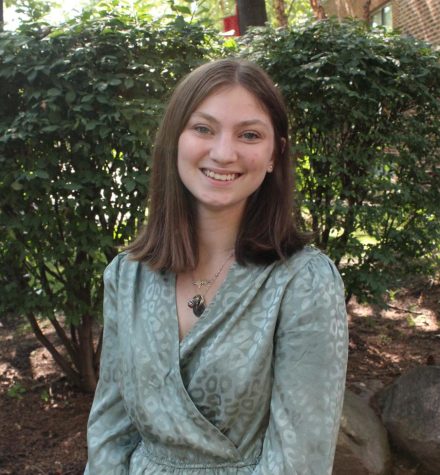ABSTs make a comeback after pause due to COVID-19
The 2020 Guatemala ABST trip focused on learning about the programs of the San Lucas Mission and learning about Guatemalan and Indigenous history.
February 23, 2022
With spring break approaching, many of Gannon’s students are planning on going back home and relaxing, but there are some who are getting ready to serve others.
The Center for Social Concerns and Global Exploration (CSCGE) plans and executes Alternative Break Service Trips (ABST) that run during spring break, for those students who would like to participate.
Due to the COVID-19 pandemic, these trips have been very difficult to put on and accomplish within the past few years.
In 2020, the spring break ABSTs were held a week before COVID-19 lockdowns went into effect. Since that is when the pandemic truly started and there were so many restrictions within the U.S. and globally, all May ABST trips were canceled.
In 2021, there were no international ABST trips and only two domestic trips: Detroit and Habitat for Humanity in Kentucky. Instead, students who planned to go on the canceled trips had the opportunity to go on week-long nature retreats.
This was disappointing to not only the students, but the faculty and the CSCGE office as well because there were supposed to be more experiences that got canceled due to a rise in COVID-19 cases.
For the first time since 2020, Gannon is holding all ABST trips.
However, there was a concern that the lack of trips within the past two years might have deterred students from applying this year. On the other hand, there was another possibility that this lack of trips in the past two years could have encouraged more students to apply for trips.
Becky Perry, director of the Center for Social Concerns and Global Exploration, expressed how these concerns played out.
“The number of applicants roughly stayed the same as years prior, with a slight decrease in numbers this year due to the new COVID-19 variants,” said Perry.
For the first time in two years, six ABST trips are running, consisting of three domestic trips and three international trips.
These trips include one to Merida, Mexico, to work with the Mission of Friendship, one to Guatemala to work with the San Lucas
Mission and one to the Navajo Nation in Arizona to work in Tuba City/Navajo Nation.
According to Perry, these trips were fairly easy to plan since they were preexisting programs with trusted partners.
However, there were a few changes that had to be made due to the existing COVID-19 protocols and necessary safety involving the virus.
These changes include having more outdoor activities and traveling to warmer places where students and faculty could be outside and in open air more.
The CSCGE also made its own COVID protocols very clear and easy for students, faculty and staff to understand and follow.
Claudia Ostertag, a senior participating in the Merida, Mexico, trip explained some of the things that people who are going on these trips must do.
“We are all getting tested pre-and post-trip,” said Ostertag. “They are sending us with lots of COVID-safety items, such as N95 masks and at-home tests. The CSCGE has very detailed plans in case anyone tests positive while in Mexico.”
In terms of COVID-19 safety, the CSCGE team has a plan for what to do if any traveler were to test positive while away from campus. It has many safety measures in place to ensure a positive test on one of the trips can be avoided.
As for additional safety precautions on traveling, Perry said that Gannon has required all participants to upload additional health forms, as well as testing before take-off and before entering back into the United States.
There will only be small changes to the itineraries and service components of the trips, Perry said.
The service is going to stay the same as before, simply because the university works with trusted partners whose COVID-19 protocols match Gannon’s.
Kristen Guballa, an accompanier for the Guatemala ABST, focused on the service and what it will center around.
“The programs include focus areas in education, health care, charity, construction, visitors, coffee and the women’s center,” said Guballa.
“We don’t know exactly what we will be doing until we get there, and it could change day-to-day so we are prepared to be flexible and learn as much as we can.”
Shelia Lang, a junior participant on the Merida, Mexico, trip said that her group will be working with children.
“We are going to be working with girls in their after-school programs and really focus on being present and learning through them,” said Lang.
Service is only one of the appealing aspects to students. Many students enjoy getting out to see the world, serving others, but also growing closer to the people that they will meet.
Creating connections is one of the main parts for many students who go on these ABSTs.
“I went on an ABST my freshman year and saw how my group went from strangers to a close group,” said junior Tristin Makenna, who is participating in the Merida, Mexico, trip. “I think that’s one of my favorite things about ABSTs.”
Ariel Farren, a senior and ABST leader for the Merida, Mexico trip said that her group members have already been hard at work, even before the trip starts.
“Some members of our group made bracelets to distribute to the afterschool program,” Farren said.
For Makenna and Farren, ABSTs create bonds with students that they might have never talked to otherwise, and they create the opportunity for students to experience and learn new things.
ABST trips can become yearly traditions for some students and can be something to look forward to on their spring break.
Although COVID-19 prevented the trips from taking place for two years, the CSCGE and the students participating in the trips worked hard to plan for COVID-safe trips that keep the ABST experience intact.
MOLLY BEGEMAN






